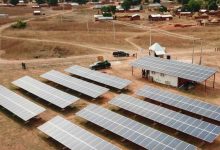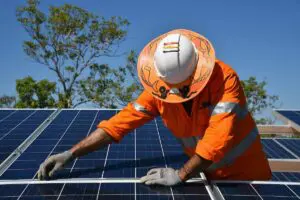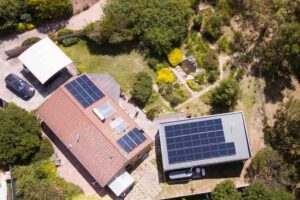Solar-powered mini-grids can play a “critical role” in delivering universal electricity access across the globe, helping to connect the 789 million people worldwide who still do not have access to reliable electricity, a new report says.
The new report – State of the Global Mini-Grids Market Report 2020– was published on Wednesday by Bloomberg New Energy Finance(BNEF) and Sustainable Energy for All (SEforALL) on behalf of the Mini-Grid Partnership (MGP). It challenges the idea that grid-connected fossil fuels are the main answer for universal access.
The report analyses technologies, businesses, regulations, financing, economics, and impact assessment in the mini-grid sector and sought the most effective policies for mini-grid development in different countries, including subsidies, licensing, tariff setting and grid arrival.
According to the report’s findings, some 238 million households around the world will need to gain electricity access by 2030 if society is to achieve Sustainable Development Goal 7, ensuring “access to affordable, reliable, sustainable, and modern energy for all.”
Mini-grids – such as those bringing solar power and battery storage to rural communities – could serve almost half of this total, an estimated 111 million households in Sub-Saharan Africa, Asia, and island nations.
Not only are mini-grids a technically feasible option, but the report demonstrates that mini-grid technology “are the most suitable option for many low- and medium-density areas and can address a larger number of low-income families more economically than the alternative options” such as expanding access to large-scale grids infrastructure.
Moreover, capital investment of an estimated $US128 billion ($A185 billion) is required over the next decade, or only $12.8 billion ($A18.5) per year, delivering Levelised Cost of Electricity (LCoE) ranging from $0.49 to $0.68 ($A0.71 to 0.98) per kWh for solar hybrid mini-grids. This is expensive for those already connected to main grids, but cheaper than off grid fossil fuels, and new grid construction.
“Solar hybrid mini-grids that integrate PV and other decentralized energy resources such as diesel generators and energy storage can complement and compete with main grid extensions in terms of the cost of electricity and the speed of deployment,” the report says.
“In the fallout of COVID-19, countries have a unique opportunity to ‘Recover Better’ and reset their economies while accelerating energy access,” said Damilola Ogunbiyi, CEO of Sustainable Energy for All. “Now, more than ever, we need a thriving mini-grids sector that can power critical infrastructure and give access to the 789 million people worldwide who lack electricity.
“We must improve regulatory frameworks, commit greater finance and scale innovative mini-grid business models. This research offers critical insights for all mini-grids stakeholders that can help the market reach its full potential and deliver Sustainable Development Goal 7 progress.”
The potential spread of solar mini-grids – and solar hybrid mini-grids, which incorporate other technologies such as wind and battery storage – is even more feasible today than it was just a few years ago.
The costs of solar PV modules and lithium-ion batteries, for instances, have fallen dramatically over the past decade, dropping by 86% and 85% respectively between 2010 and 2018. Meanwhile, remote connectivity, control, and data analysis have expanded the range of available options for developers.
While much of the emphasis until now has been focused on expanding main grid infrastructure, and through that fossil fuels, the cost argument of remote solar mini-grids is expected to win out more often, and the areas where main grid infrastructure can feasibly reach more economically than off-grid alternatives are slowly being exhausted.
Even the incremental costs of adding new rural customers to the main grid are becoming cost prohibitive, it says.
As such, the authors of the report conclude that it is imperative for governments and utilities to take a least-cost approach that takes advantage of the expanding breadth of low-cost technologies available – a particularly important approach considering the debt-ridden state of many state-owned utilities.
“As the market matures, funding deployment must be quicker,” said Takehiro Kawahara, frontier power lead analyst at BNEF. “This is linked to the policy and regulations of the countries where recipients of funding are located. Governments need to promote robust regulatory frameworks that support the development of mini-grids.”
Mini-grid deployment is still only in the early stages of what is technically feasible and socially warranted. As of March 2020, the report identified a total of 7,181 mini-grid projects across Sub-Saharan Africa, Asia, and small island nations, as well as some in Latin America. Of this total, as many as 5,544 mini-grids were already operational, of which 63% were solar or solar hybrid systems.
However, the mini-grids identified represent only a small fraction of what is needed to achieve full global electrification.
There are nevertheless legitimate hurdles to overcome if mini-grids are to deliver full global electrification, such as the fact that rural customers often have limited power demand and, in other cases, are unable to pay for electricity. Secondly, and unsurprisingly, there is a general lack of policies and regulations to support the development and deployment of mini-grids.










